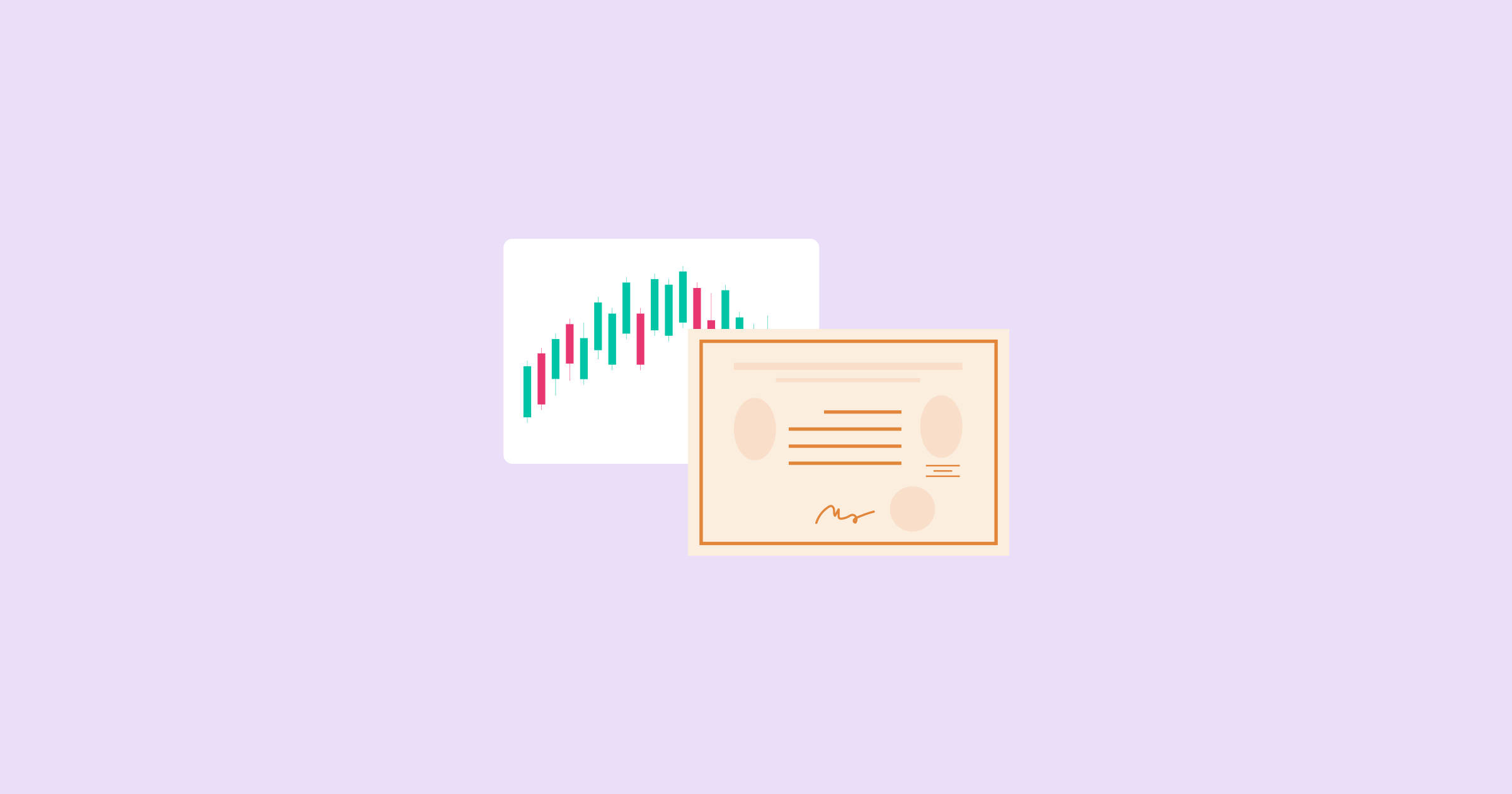Stocks and bonds are arguably 2 of the most popular options you may consider if you aim to grow money through investing.
If your budget is limited, you may wonder which 1 is a better option to start with.
Read on to compare their features and find a good match for you.
How they work
Stocks represent shares of ownership in a company. Buying a stock of a publicly-listed company allows you to own a small part of that company.
The more stock you buy, the more of that company you own.
Bonds are debt securities. When you invest in a bond, you're essentially lending money to the company or government entity that issued it.
These entities will, in turn, repay you through regular interest payments and give back the principal (original amount) by the time the bond matures.
How they may help you make money
Stocks have the potential to make you money in 2 ways:
1. Price growth - If the value of a stock goes up after you buy, you can sell it for more than what you paid.
2. Dividends - Some companies pay a part of their profits to shareholders via dividends.
Keep in mind that price appreciation and dividend payments aren’t guaranteed. Changes in price are driven by supply and demand.
In turn, supply and demand are influenced by many factors, like a company’s financial performance, economic events, and investor outlook.
Companies can decide whether to pay dividends or not, though there are preferred stocks that aim to pay regular dividends.
Bonds, on the other hand, may earn you money through:
1. Interest payments – You can earn interest at a fixed rate in the form of coupons. These are paid on a set schedule until the bond matures.
Upon maturity, you’ll get back the face value of the bond (or its original price) plus any final interest.
2. Price appreciation – You may be able to resell bonds on the secondary market through your chosen broker or investing service. You can make a profit if a bond’s market value grows after you bought it.
Like stocks, there’s no guarantee that a bond’s market value will go up over time. Keep reading to know the risks you may face when investing in each option.
How you may risk your money
- Volatility
Stocks are usually more volatile, which means their prices can go up and down a lot in a short time. It can be stressful to see a stock’s price dropping after you buy it.
Meanwhile, bonds tend to be more stable since they offer fixed earnings. You know how much you’ll earn and when you’ll receive interest payments.
However, volatility isn’t necessarily a bad thing. Though there’s a chance of significant losses, highly volatile investments may also offer larger potential returns than less volatile ones.
Note that some types of stocks are more volatile than others. For example, stocks of large, well-established companies tend to be more stable and grow more consistently than those of small companies.
- Default risk
If the bond issuer can’t pay you back and must default on its debt, you could lose some or all of the money you invested as well as future interest payments.
Chances of a default may vary depending on the bond issuer’s financial health. For example, government bonds tend to be safer than corporate bonds since governments have more revenue sources than private entities.
You can look at credit ratings to know whether an issuer is in good financial standing and can repay debt easily.
Additionally, if a company goes bankrupt, bondholders are prioritized over shareholders in terms of repayment.
- Changing interest rates
Bonds are sensitive to interest rate changes. If interest rates go up, older bonds with lower rates may lose value because new issuances are paying more.
You may lose money if you’ll sell your bonds after interest rates have increased. This might not be an issue if you’re happy with the fixed rate of a bond and plan to hold it until maturity.
If you haven’t bought bonds yet, rising rates can present a good opportunity to start investing in new issuances that offer higher rates.
Meanwhile, stocks can be indirectly affected by interest rates. Higher rates make borrowing more expensive for consumers and companies.
If rates remain high for a while, companies might grow more slowly, if they grow at all. This can affect their profits and may lead to a drop in stock prices.
On the flip side, lower rates may encourage economic activity and allow companies to grow.
Which is better?
Are stocks better than bonds, or is it the other way around? There is no clear-cut answer, and your choice should depend on your goals and comfort with risk.
If you want higher potential growth and are okay with the ups and downs, stocks might be a good option. If you prefer steady income and lower risk, bonds might be a better fit.
Today, you have options to invest in these securities without needing a lot of money. It may actually be better for you to consider investing in both.
Having a mix of different types of investments is called diversification. Done right, it can help you balance risk and reward.
There are even pooled funds that allow you to spread money across these assets in one go.




